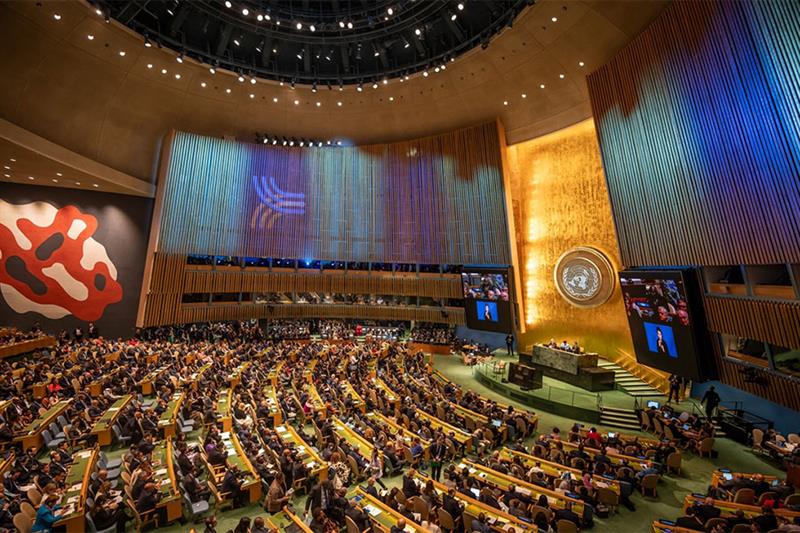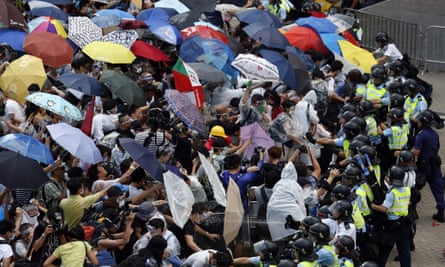World

World
06 Nov, 2025
France Joins Western Allies in Recognizing Palestinian State Amid Gaza Conflict
Perfecto Ilagan
During a global summit held at the United Nations in New York, France formally recognized the State of Palestine, joining other Western countries such as Britain and Canada, who took the same historic step over the weekend amid the ongoing Gaza war. French President Emmanuel Macron, who hosted the event, emphasized the need to "pave the way for peace" before announcing the recognition, which was met with applause.
Convened by France and Saudi Arabia, the summit aimed to bolster Palestinian morale in their prolonged pursuit of statehood. Nonetheless, the recognition is seen as largely symbolic and unlikely to bring immediate changes on the ground, where the conflict continues unabated.
Israel's most right-wing government has openly rejected the prospect of a Palestinian state while intensifying its military campaign against Hamas in Gaza. Following the October 7, 2023, attacks that killed over 1,200 Israelis, Israel launched a significant ground offensive on Gaza City, resulting in mounting casualties, with Palestinian health authorities reporting over 65,000 deaths.
Additional European microstates including Andorra, Belgium, Luxembourg, and San Marino planned to recognize Palestinian statehood ahead of the UN General Assembly. Malta announced its decision earlier on the same day. However, Israel condemned these moves as detrimental to peace efforts.
The recognition of Palestine touches on the dormant two-state solution, which was central to the Oslo Accords in 1993 but has seen no progress since 2014. Both Israel and the United States boycotted the summit, with Israel’s ambassador to the UN, Danny Danon, stating that statehood issues should be resolved through negotiations between the parties.
Secretary of State Marco Rubio echoed Washington’s stance, warning that recognizing Palestine prematurely could exacerbate regional tensions. Yet, with violence escalating in Gaza and increasing settler unrest in the West Bank, some nations are pressing to act swiftly before the two-state solution becomes unattainable.
France, spearheaded by Macron’s earlier commitment to recognition announced in July, is seeking to invigorate a movement traditionally led by smaller, more critical states towards Israel. While Palestine holds observer status at the UN, full membership remains unrealized due to the Security Council’s veto powers, especially by the United States.
Within Europe, divisions remain. Germany and Italy, two economic powerhouses, have expressed reluctance to recognize Palestine at this stage. Germany underscores that recognition should follow political negotiations, while Italy labeled such recognition as potentially "counterproductive".
In Israel, Prime Minister Benjamin Netanyahu has vowed to continue operations against Hamas until its destruction, rejecting calls to halt the offensive or acknowledge Palestinian statehood. He plans to announce Israel’s response to the recognitions upon his return from a meeting with the U.S. president.
Potential Israeli responses include the annexation of parts of the occupied West Bank and targeted diplomatic actions against countries like France. However, attempts at annexation risk alienating regional partners, notably the United Arab Emirates, a key player that normalized ties with Israel under the Abraham Accords but warned that annexation would harm that progress.
The United States has cautioned nations against punitive measures toward Israel for recognizing Palestine, highlighting the complex diplomatic environment surrounding the issue.
This development marks a significant and symbolic moment in the Palestinian quest for statehood amid an intensifying and tragic conflict that continues to defy resolution.
Recommended For You

Manila Mayor Applauds Police Restraint Amid Protest Clashes; No Fatalities Reported
Nov 06, 2025
Crispina Endaya

Globe Launches SMS Scam Shield to Combat Text-Based Phishing Threats
Nov 06, 2025
Crispina Endaya

Global Study Highlights IT Modernization as Executive Priority Amid Key Challenges
Nov 06, 2025
Herminio Cabanlit

Nationwide Protests Demand Accountability Over Flood Control Fund Corruption
Nov 06, 2025
Herminio Cabanlit
